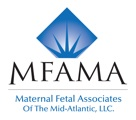Pregnancy is an exciting time in your life. Your first visit to the OB is long and you will of course have many questions asked, and you will also want to ask many questions. One of the most important is about prenatal testing and screening for your unborn baby. As technology gets better and better, the number of tests available to you are more and more confusing and overlapping. The concept of NIPT or non-invasive prenatal testing has been unofficially assigned to a specific test related to evaluating maternal blood for fetal DNA or circulating cell free DNA (ccf DNA). The test is able to identify your baby’s genetics and determine if he or she is at risk of Down syndrome (Trisomy 21) as well as other chromosomal/genetic changes. The test is a screening test, so it is not a definitive test, but for Down syndrome especially, it has a high detection rate. One of the limitations of this test is that patients and even OB doctors assume that a normal test means that “everything is ok.” This is not the case. The test only evaluates blood, it is an indirect test and does not evaluate your baby for birth defects. Chromosomal changes account for only 1% of findings, and birth defects account for 3-5% of problems. Without an ultrasound to evaluate the baby’s anatomy along with the ccf DNA, you are only getting part of the evaluation.
Just as technology is improving on the ability to test for fetal DNA, ultrasound technology has also improved. Ultrasound performed by a Maternal Fetal Medicine Specialist (MFM) in the first trimester, around 12-14 weeks, now has the capability to identify numerous fetal problems affecting the brain, spinal cord, and heart. This first trimester ultrasound in many cases can also identify an increased risk for chromosomal changes and genetic syndromes that would not be evaluated by the ccf DNA test. The 12-14 week ultrasound also has the ability to evaluate for placental abnormalities, uterine, ovarian abnormalities and blood flow abnormalities in the mother that could lead to increased risks of preeclampsia and preterm birth. Combined with a simple blood test at 12-14 weeks, a complete evaluation can be provided. The benefit of both the ccf DNA and the 12-14 week ultrasound is early diagnosis.
Although the term NIPT has been used to refer to ccf DNA, the concept of Non Invasive Prenatal Testing applies to any test that is not invasive. The only routinely used invasive prenatal tests are Chorionic Villus Sampling (CVS) and Amniocentesis. These are direct, definitive, diagnostic tests. Today the use of multiple non invasive methods allows us to approach the accuracy of diagnosis of CVS and amniocentesis. When deciding on a prenatal evaluation, Combined Comprehensive First trimester Screening (CCFTS) will provide the most comprehensive form of NIPT. For women over the age of 35, using the ccf DNA combined with the 12-14 week ultrasound provides a complete evaluation, and for women under the age of 35, the 12-14 week ultrasound combined with a blood test (or ccf DNA) also provides a complete Non invasive prenatal evaluation. Relying only on a blood test, or only on an ultrasound is incomplete, but combining blood testing and imaging is the most Comprehensive form of Non Invasive Prenatal testing for your baby and results would be available early in pregnancy as compared to waiting for an ultrasound at 20 weeks when major birth defects could be identified.
It is important that you communicate with your OB that you prefer Combined Comprehensive First Trimester Screening (CCFTS). The combination of blood testing and high level 12-14 week ultrasound by an MFM specialist provides the best screening approach to early diagnosis of fetal concerns.
